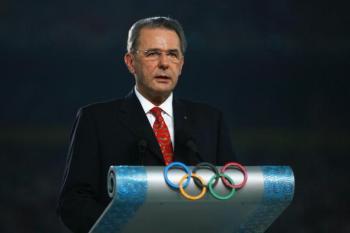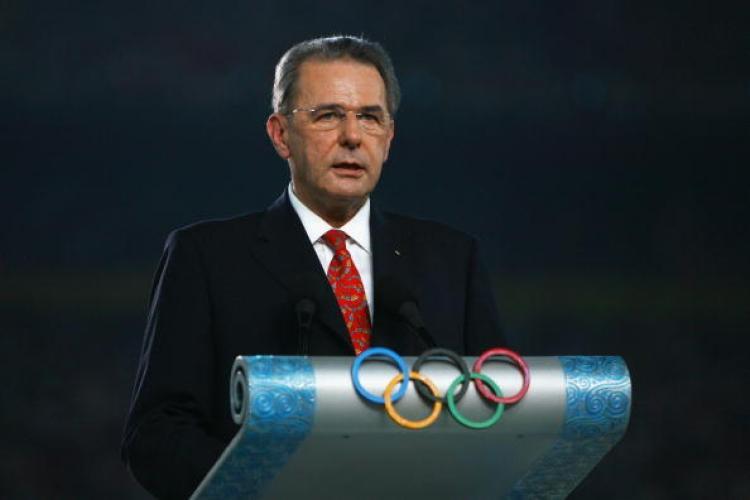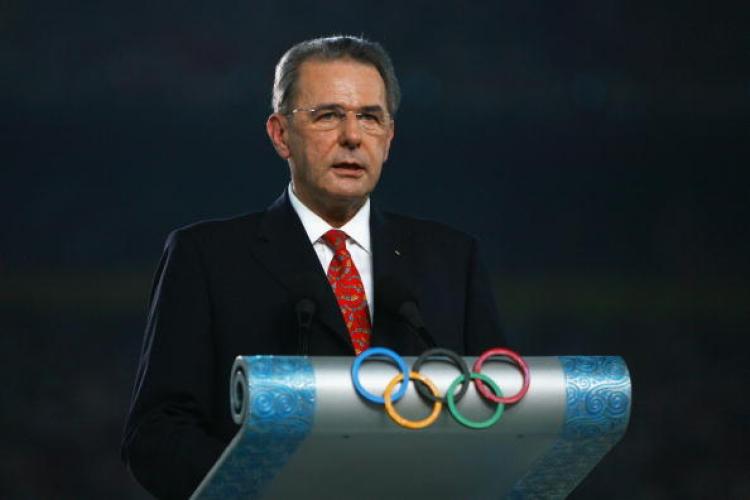Chinese prison conditions have declined, not improved as the Olympic Games approached, says Chinese dissident.
He Depu who is currently living out an 8-year sentence in Beijing No. 2 Prison for writing Internet essays that ‘incited subversion’ of the Communist regime’s power, invited International Olympic Committee (IOC) president Jacques Rogge to see Beijing prison conditions first-hand.
He Depu has been involved in democracy activism since the 1970’s taking part in the Democracy Wall and helping found the China Democracy Party. In 2002, he was one of the 192 signatories of an open letter to the Sixteenth National Congress of the Communist Party of China which resulted in the arrests of the more prominent political activists who had signed the letter.
Writing to Mr Rogge in April this year He Depu highlighted the brutal reality of Beijing’s prisons stating that as events unfolded in Beijing, tighter limitations were being placed on political dissidents. As it is dissidents are not allowed to call or meet with their families, obtain a reduced sentence or be interviewed by the media.
The letter was in response to an article Mr Rogge published in the International Herald Tribune in 2007, titled ‘A Catalyst, Not A Cure,’ referring to the effect the Olympic Games could have on human rights in China. In his letter Mr He expressed his worry that the “catalyst” would not have any catalysing affect on prison conditions.
Mr He says that more and more prisoners are becoming sick from malnourishment and lack of proper medical treatments as well lack of opportunities to go outside. According to Mr He the Beijing No. 2 Prison’s roof was remodelled in May of 2007, to welcome the Beijing Games and as a result prisoners were not allowed outdoors to breathe fresh air for half a year.
Mr He suffers from high blood pressure but said because prisoner supervision increased due to the Olympics, the prison warden gave orders to take away thermometers and equipment for measuring blood pressure.
“The reason was that they contained mercury which the prisoners might attempt to drink. Now, prisoners suffering from high blood pressure normally have no way of monitoring their own blood pressure, seriously affecting their health.”
Wu Fan, editor-in-chief of China Affairs, was arrested and jailed as a political prisoner before leaving China. Mr Wu said that events occurring outside of prisons always affect what happens inside.
“Once there is the slightest sign of trouble, they [the CCP authorities] will immediately begin to control inside, so that less troubles will occur inside.”
The Olympics is an international event with many unstable factors and the Ministry of Public Security, the labour camps or Supervision and Administrative Bureau are all scared of commotions, says Mr Wu.
“The Olympics is a much bigger subject, so those who are monitored will all suffer and will all receive a severer control over them. This is how the Communist party acts. ”
Indeed it has always been before a major event in Beijing that mass crackdowns on dissidents occur. In the lead up to the Olympics authorities detained democracy advocate Wang Rong-Qing in Zhejiang Province for allegedly ‘subverting state-power,’ the same charge that landed He Depu in prison.
The Falun Dafa Information Centre (FDIC) reported in July that in the seven months leading up to the Olympics more than 8,000 Falun Gong practitioners were arrested in Beijing alone as authorities went searching door-to-door. Most practitioners were being held in detention centres, while 30 had already been sentenced to re-education-through-labour camps for up to 2.5 years.
“The fact that these people are being sentenced to such long terms shows that these arrests are not about ensuring a ‘harmonious Olympics’ as Party officials may try to claim,” said FDIC executive director Erping Zhang in the report.
He Depu who is currently living out an 8-year sentence in Beijing No. 2 Prison for writing Internet essays that ‘incited subversion’ of the Communist regime’s power, invited International Olympic Committee (IOC) president Jacques Rogge to see Beijing prison conditions first-hand.
He Depu has been involved in democracy activism since the 1970’s taking part in the Democracy Wall and helping found the China Democracy Party. In 2002, he was one of the 192 signatories of an open letter to the Sixteenth National Congress of the Communist Party of China which resulted in the arrests of the more prominent political activists who had signed the letter.
Writing to Mr Rogge in April this year He Depu highlighted the brutal reality of Beijing’s prisons stating that as events unfolded in Beijing, tighter limitations were being placed on political dissidents. As it is dissidents are not allowed to call or meet with their families, obtain a reduced sentence or be interviewed by the media.
The letter was in response to an article Mr Rogge published in the International Herald Tribune in 2007, titled ‘A Catalyst, Not A Cure,’ referring to the effect the Olympic Games could have on human rights in China. In his letter Mr He expressed his worry that the “catalyst” would not have any catalysing affect on prison conditions.
Mr He says that more and more prisoners are becoming sick from malnourishment and lack of proper medical treatments as well lack of opportunities to go outside. According to Mr He the Beijing No. 2 Prison’s roof was remodelled in May of 2007, to welcome the Beijing Games and as a result prisoners were not allowed outdoors to breathe fresh air for half a year.
Mr He suffers from high blood pressure but said because prisoner supervision increased due to the Olympics, the prison warden gave orders to take away thermometers and equipment for measuring blood pressure.
“The reason was that they contained mercury which the prisoners might attempt to drink. Now, prisoners suffering from high blood pressure normally have no way of monitoring their own blood pressure, seriously affecting their health.”
Wu Fan, editor-in-chief of China Affairs, was arrested and jailed as a political prisoner before leaving China. Mr Wu said that events occurring outside of prisons always affect what happens inside.
“Once there is the slightest sign of trouble, they [the CCP authorities] will immediately begin to control inside, so that less troubles will occur inside.”
The Olympics is an international event with many unstable factors and the Ministry of Public Security, the labour camps or Supervision and Administrative Bureau are all scared of commotions, says Mr Wu.
“The Olympics is a much bigger subject, so those who are monitored will all suffer and will all receive a severer control over them. This is how the Communist party acts. ”
Indeed it has always been before a major event in Beijing that mass crackdowns on dissidents occur. In the lead up to the Olympics authorities detained democracy advocate Wang Rong-Qing in Zhejiang Province for allegedly ‘subverting state-power,’ the same charge that landed He Depu in prison.
The Falun Dafa Information Centre (FDIC) reported in July that in the seven months leading up to the Olympics more than 8,000 Falun Gong practitioners were arrested in Beijing alone as authorities went searching door-to-door. Most practitioners were being held in detention centres, while 30 had already been sentenced to re-education-through-labour camps for up to 2.5 years.
“The fact that these people are being sentenced to such long terms shows that these arrests are not about ensuring a ‘harmonious Olympics’ as Party officials may try to claim,” said FDIC executive director Erping Zhang in the report.







